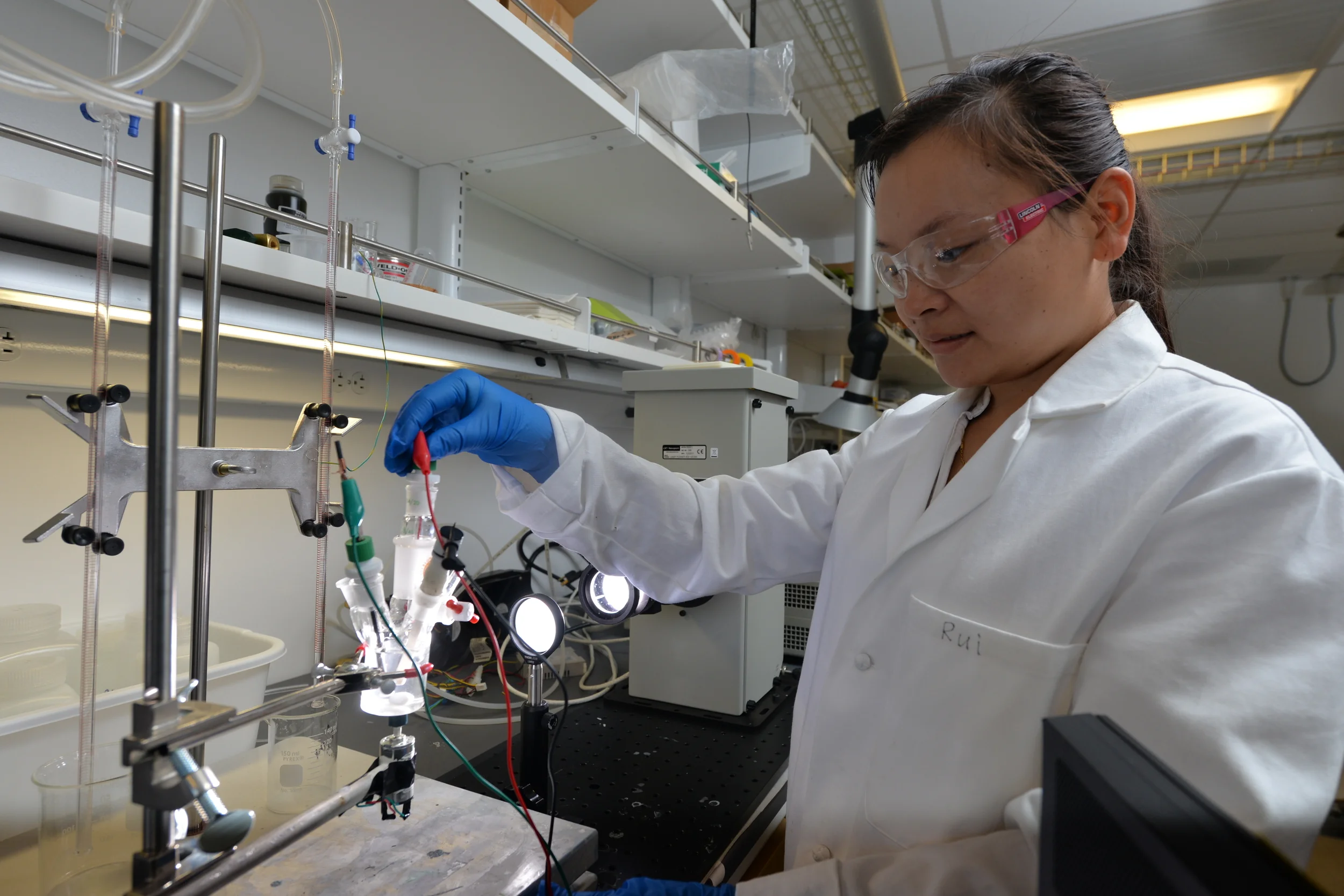Research
Why solar carbon Dioxide conversion to fuels?
Today’s global energy supply is dominated by non-renewable fossil fuels. The United States transportation sector accounts for over a quarter of the country’s energy end-use and is heavily dependent on the use of fossil fuels in the form of liquid hydrocarbon. A sustainable, scalable source of energy-dense chemical fuels is urgently needed to ensure the security of our energy supply for future generations.
Conventional renewables cannot yet accommodate large-scale generation of transportation fuel. One of the most promising avenues for the transformation of a current transportation economy lies in the discovery and harnessing of novel routes in the large-scale generation of renewable hydrocarbon fuels.
JCAP is addressing this formidable challenge by establishing a scientific foundation for a renewable hydrocarbon fuel sector that recycles carbon dioxide, a greenhouse gas, using solar energy.
There is no presently known catalyst that can facilitate carbon dioxide solar conversion to fuels with high efficiency and selectivity. Achieving controlled catalysis would be a revolutionary scientific achievement that could pave the way to a scalable technology that converts carbon dioxide to liquid fuels with only solar added energy.
JCAP’s scientific program is organized into four research thrusts that focus on: the discovery of electrocatalysts for carbon dioxide reduction and oxygen evolution, understanding structure and composition parameters that govern catalyst activity and selectivity, understanding interfacial phenomena in material assemblies and their testing under real operating conditions.


